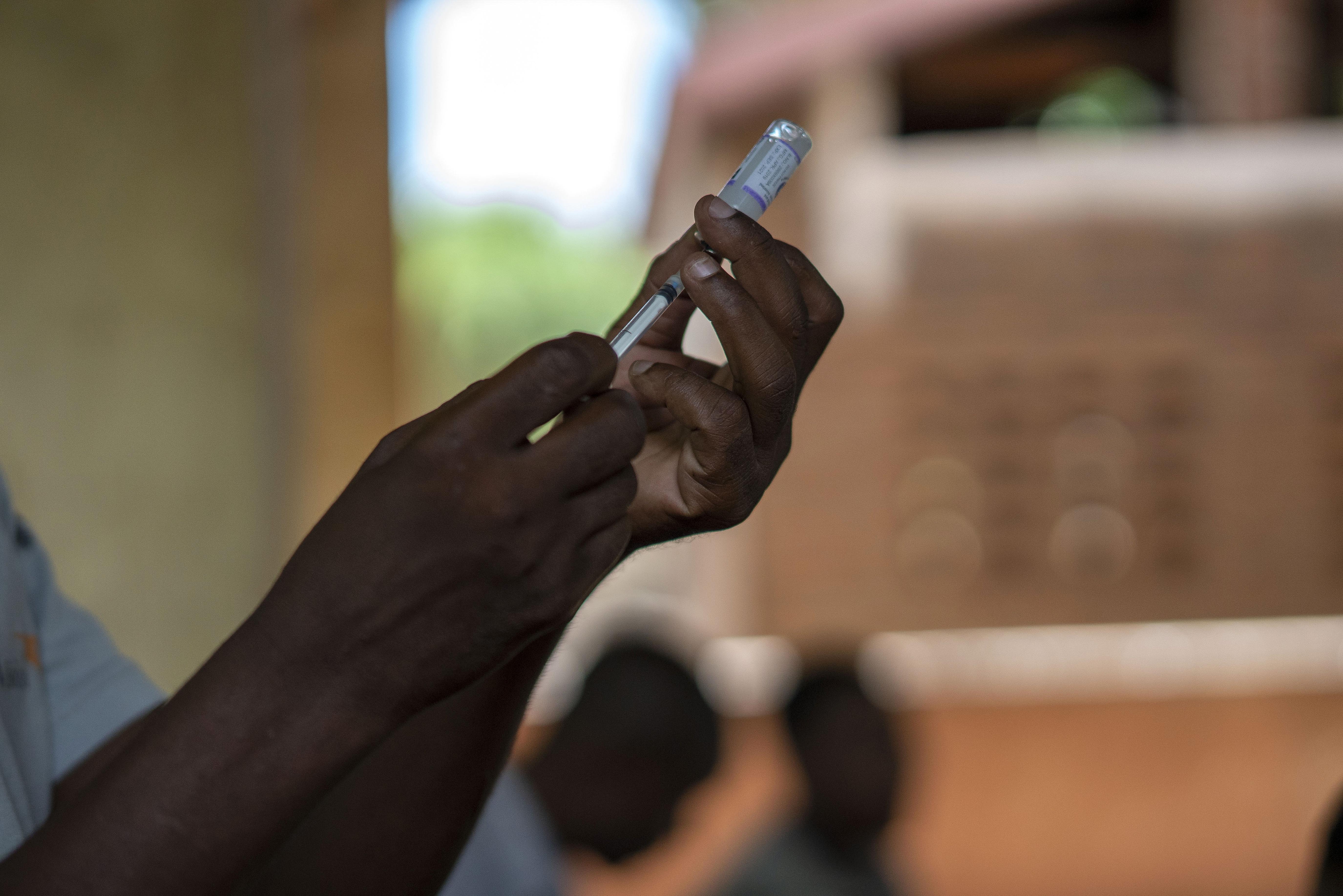 In this file photo taken Dec 11, 2019, health officials prepare to vaccine residents of the Malawi village of Tomali, where young children become test subjects for the world's first vaccine against malaria. (PHOTO / FILE / AP)
In this file photo taken Dec 11, 2019, health officials prepare to vaccine residents of the Malawi village of Tomali, where young children become test subjects for the world's first vaccine against malaria. (PHOTO / FILE / AP)
GENEVA - The World Health Organization recommended on Monday the use of a second malaria vaccine to curb the life-threatening disease spread to humans by some mosquitoes.
"Almost exactly two years ago, WHO recommended the broad use of the world's first malaria vaccine called RTS,S," WHO chief Tedros Adhanom Ghebreyesus told a briefing in Geneva.
"Today, it gives me great pleasure to announce that WHO is recommending a second vaccine called R21/Matrix-M to prevent malaria in children at risk of the disease."
R21/Matrix-M, developed by Britain's University of Oxford, will become available by mid-2024, Tedros said, adding that doses would cost between $2 and $4.
"WHO is now reviewing the vaccine for prequalification, which is WHO stamp of approval, and will enable GAVI (a global vaccine alliance) and UNICEF to buy the vaccine from manufacturers," Tedros said.
Twenty million doses
R21/Matrix-M is mass manufactured by Serum Institute of India and uses Novavax's Matrix M adjuvant.
Adar Poonawalla, CEO of Serum Institute of India, said it had already produced more than 20 million doses in anticipation of WHO's recommendation.
"We will ramp it up as per what the demand requirements are," he said in an interview. "We hope that by the end of 2024, there will be zero mismatch of demand and supply, with our supply coming into the system."
The vaccine will compete against the RTS,S shot by GSK Plc, which was recommended by the United Nations-agency in 2021 and sold under the brand Mosquirix
The vaccine will compete against the RTS,S shot by GSK Plc, which was recommended by the United Nations-agency in 2021 and sold under the brand Mosquirix.
The WHO said both vaccines had shown similar efficacy in separate trials, but without a head-to-head trial there was no evidence showing whether one performed better.
The agency has left it to countries to decide which product to use based on various factors, including the affordability and supply.
"GSK has always recognized the need for a second malaria vaccine, but it is increasingly evident that RTS,S, the first ever malaria vaccine and the first ever vaccine against a human parasite, set a strong benchmark," GSK said in a statement.
The company added that over 1.7 million children in Ghana, Kenya and Malawi had received at least one dose of the shot and it would be rolled out in another nine malaria endemic countries from early next year.
READ MORE: GAVI: 9 new African countries to receive millions of malaria vaccines
Malaria kills over 600,000 each year globally, most of them children in Africa.
Dengue vaccine
Tedros added the agency had also recommended Takeda Pharmaceuticals' vaccine against dengue called Qdenga for children aged 6 to 16 in areas where the infection is a significant public health problem.
Dengue, common in tropical and subtropical climates, is a viral infection spread from mosquitoes to people.
Takeda's vaccine was shown in trials to be effective against all four serotypes of the virus in people who were previously infected by dengue, Hanna Nohynek, chair of WHO's Strategic Advisory Group of Experts on Immunization, told journalists.
She added, however, uncertainty lingered about its performance against serotype 3 and 4 in people who have not been infected previously.
READ MORE: African nations to approve malaria shot, 20m doses ready
The WHO's strategic advisory group also recommended a simplified single dose regime for primary immunization for most COVID-19 vaccines to improve acceptance of the shots at a time when most people have had at least one prior infection.
Any monovalent or bivalent vaccine could be used given that monovalent vaccines that target the XBB.1.5 variant, which has been dominant in many places this year, are unavailable in many countries, the agency added.



